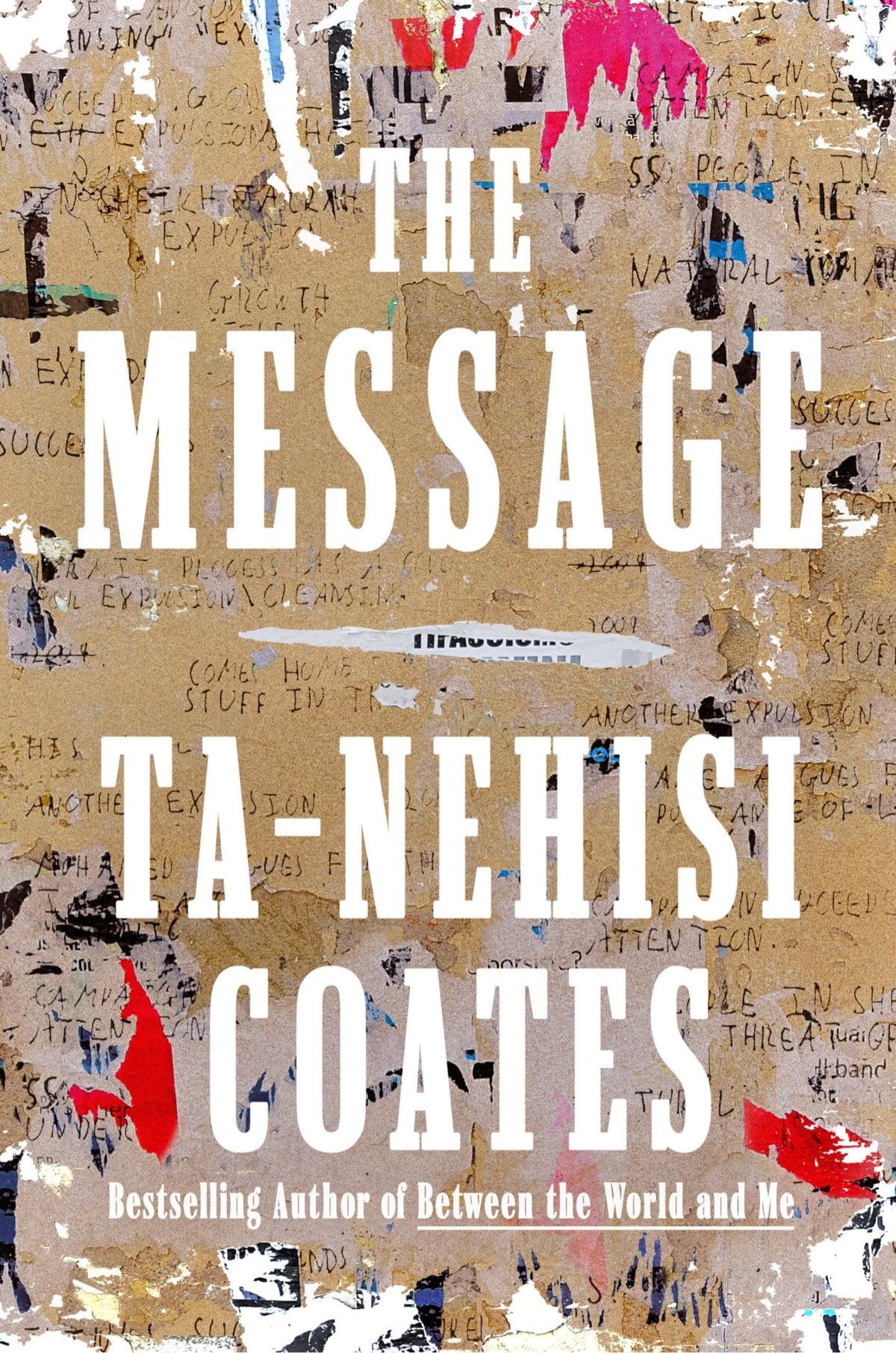The Message by Ta-Nehisi Coates

Ta-Nehisi Coates is coming out with a new book this fall (Oct 1, 2024) called The Message and it sounds really interesting:
Ta-Nehisi Coates originally set out to write a book about writing, in the tradition of Orwell’s classic “Politics and the English Language,” but found himself grappling with deeper questions about how our stories — our reporting and imaginative narratives and mythmaking — expose and distort our realities.
In the first of the book’s three intertwining essays, Coates, on his first trip to Africa, finds himself in two places at once: in Dakar, a modern city in Senegal, and in a mythic kingdom in his mind. Then he takes readers along with him to Columbia, South Carolina, where he reports on his own book’s banning, but also explores the larger backlash to the nation’s recent reckoning with history and the deeply rooted American mythology so visible in that city — a capital of the Confederacy with statues of segregationists looming over its public squares. Finally, in the book’s longest section, Coates travels to Palestine, where he sees with devastating clarity how easily we are misled by nationalist narratives, and the tragedy that lies in the clash between the stories we tell and the reality of life on the ground.
Coates was recently a guest on the Longform podcast and he talked about one of the central themes of the book (“how the stories we tell — and the ones we don’t — shape our realities”):
There’s a certain sector of politics on the right that really correctly understands that cultural issues are very, very powerful, actually. That books and movies and TV shows and monuments and statues and art, all that stuff actually really does matter and has a huge effect on what we consider actual politics, which is to say voting, legislation, etcetera. Because our whole notions of humanity are derived from these things. They’re derived from, you know, stories. They’re derived from the news. They’re derived from, you know, art. They derive from statues. That’s how we decide, you know, who is what.
And the reason, you know it’s powerful is because in previous eras — for instance, when during the era of redemption, it became extremely important to destroy the multiracial democracies that have been raised in the South. They went after the history. They went after the stories. That’s where all those monuments come from. Those monuments are not just raised out of nothing. It’s not a mistake that it wasn’t until the early 1960s the Southern states started putting up the Confederate battle flag. They understood the power of the symbol. They know. They know. And now they find themselves in an era where there is a very real cultural war, by which I mean: the hegemony that they once enjoyed over the culture is actually actively being challenged, and that is a long term threat to the politics that they represent.
So, I mean, a lot of people say, oh, this is a distraction. I actually think it’s quite intelligent. While it’s not the response I would have, I don’t think it’s a deluded response or delusional response, rather.
It sounds fascinating — I definitely preordered.





Comments 2
Excited to read this. Also RIP longform. What a wonderful, humble podcast.
I echo the kudos to the Longform podcast which is ending next week. Thankfully the 12-year archive will remain—one of the truly great records of writers in the 21st Century.
Hello! In order to comment or fave, you need to be a current kottke.org member. If you'd like to sign up for a membership to support the site and join the conversation, you can explore your options here.
Existing members can sign in here. If you're a former member, you can renew your membership.
Note: If you are a member and tried to log in, it didn't work, and now you're stuck in a neverending login loop of death, try disabling any ad blockers or extensions that you have installed on your browser...sometimes they can interfere with the Memberful links. Still having trouble? Email me!
In order to comment or fave, you need to be a current kottke.org member. Check out your options for renewal.
This is the name that'll be displayed next to comments you make on kottke.org; your email will not be displayed publicly. I'd encourage you to use your real name (or at least your first name and last initial) but you can also pick something that you go by when you participate in communities online. Choose something durable and reasonably unique (not "Me" or "anon"). Please don't change this often. No impersonation.
Note: I'm letting folks change their display names because the membership service that kottke.org uses collects full names and I thought some people might not want their names displayed publicly here. If it gets abused, I might disable this feature.
If you feel like this comment goes against the grain of the community guidelines or is otherwise inappropriate, please let me know and I will take a look at it.
Hello! In order to leave a comment, you need to be a current kottke.org member. If you'd like to sign up for a membership to support the site and join the conversation, you can explore your options here.
Existing members can sign in here. If you're a former member, you can renew your membership.
Note: If you are a member and tried to log in, it didn't work, and now you're stuck in a neverending login loop of death, try disabling any ad blockers or extensions that you have installed on your browser...sometimes they can interfere with the Memberful links. Still having trouble? Email me!